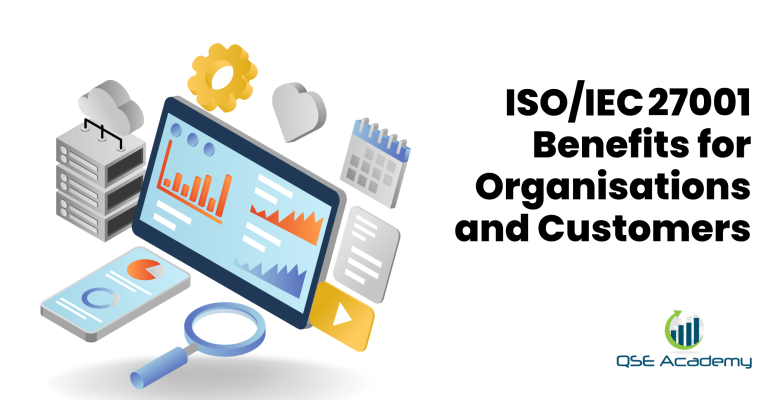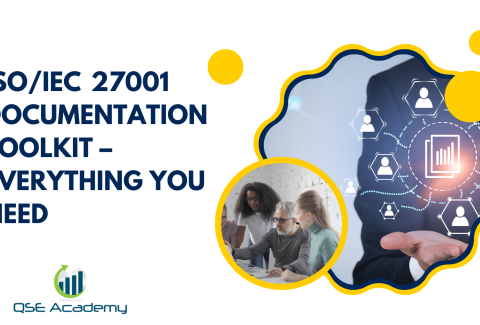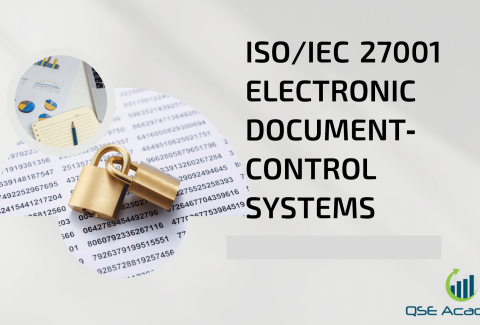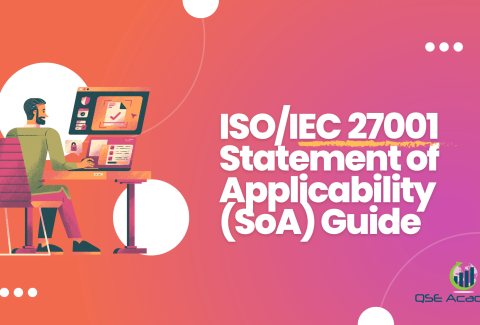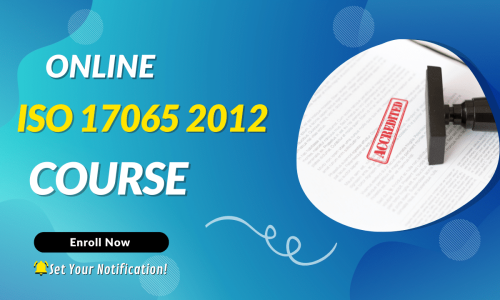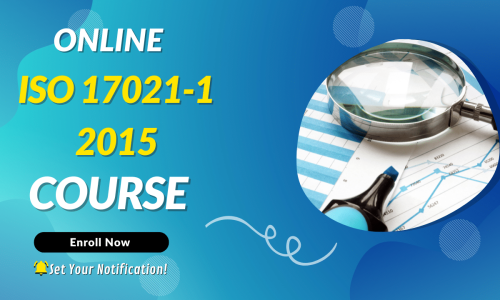ISO/IEC 27001 Benefits for Organisations and Customers
Last Updated on December 23, 2025 by Hafsa J.
Introduction
For many businesses, ISO/IEC 27001 can look like just another certification—something pursued to tick a compliance box. But in reality, it delivers far more than that. It’s the globally recognized standard for building an Information Security Management System (ISMS), and its benefits extend well beyond internal security.
The challenge most leaders face is understanding whether those benefits justify the investment. Is ISO 27001 only about avoiding risks, or does it actively create value for both the organization and its customers?
This article answers that question by exploring the real-world advantages of ISO 27001. You’ll see how certification strengthens resilience, builds trust, improves efficiency, supports compliance, and ultimately creates confidence for customers who rely on your business to protect their data.
By the end, it will be clear why ISO 27001 is not just a compliance tool, but a strategic asset for long-term growth and customer loyalty.
Strengthening Organisational Security and Resilience
At its core, ISO/IEC 27001 is about giving organisations a structured way to manage information security. Instead of reacting to incidents or relying on ad hoc policies, certification requires a clear framework: risks are identified, controls are applied, and systems are continuously improved.
How It Strengthens Security
-
Risk Identification – Organisations systematically analyse where data is vulnerable, whether through cyber threats, insider risks, or supplier dependencies.
-
Control Implementation – Technical, physical, and procedural safeguards are mapped to those risks.
-
Continuous Improvement – Regular reviews, audits, and corrective actions ensure the system adapts to evolving threats.
Example in Practice
A financial services company dealing with sensitive customer transactions uses ISO 27001 to prioritise its risks. Encryption and access controls are implemented not just as “good practice,” but as part of a documented, auditable system. Over time, the company sees fewer incidents and is able to respond faster when new risks emerge.
The result is resilience: instead of being disrupted by every new cyber threat, the organisation builds confidence that it can withstand challenges and recover quickly.
Competitive Advantage and Market Trust
ISO/IEC 27001 certification doesn’t just improve internal security—it also signals to the outside world that an organisation takes information protection seriously. In competitive markets, this assurance often makes the difference between winning and losing opportunities.
Why It Builds Advantage
-
Trust Signal for Clients – Certification shows that data security is not left to chance but backed by a recognised international standard.
-
Market Differentiator – When competitors can’t demonstrate certification, organisations with ISO 27001 stand out as lower-risk partners.
-
Global Recognition – Because ISO 27001 is an international framework, it helps when expanding into new regions or industries where local regulations vary.
Example in Practice
A cloud service provider competing for an enterprise contract may face strict security requirements from potential clients. Without ISO 27001, the provider spends time explaining policies and trying to prove reliability. With certification, the proof is built in—the client sees a recognised, independent validation of the provider’s security practices.
For customers, this reassurance builds trust. For the organisation, it becomes a competitive edge that opens doors to contracts, partnerships, and markets that might otherwise remain closed.
Operational Efficiency and Cost Savings
ISO/IEC 27001 is often seen as a cost of compliance, but in practice it can reduce expenses and improve how an organisation operates. By introducing structured processes and clear responsibilities, it helps eliminate duplication, streamline workflows, and prevent costly incidents.
How It Improves Efficiency
-
Structured Processes – Everyone knows their role in protecting information, reducing confusion and wasted effort.
-
Preventing Breaches – Addressing risks proactively avoids the heavy costs of incidents, fines, or reputational damage.
-
Better Use of Resources – Instead of reacting to problems, teams can focus on continuous improvement and long-term planning.
Example in Practice
A healthcare provider that implemented ISO 27001 reported significant savings after aligning its security practices with the standard. Previously, overlapping processes across IT, compliance, and operations created inefficiencies. Once streamlined under a single ISMS, the organisation reduced audit preparation time and cut down on incident-related costs.
The lesson is simple: while certification requires investment, the payoff often comes in the form of reduced risks, smoother operations, and long-term savings.
Regulatory and Legal Compliance Support
For many organisations, compliance with laws and industry regulations is one of the biggest challenges in managing information. ISO/IEC 27001 provides a framework that helps align security practices with these requirements, making audits and regulatory reviews far easier to handle.
How ISO 27001 Supports Compliance
-
Alignment with Privacy and Security Laws – The standard supports compliance with frameworks such as GDPR, HIPAA, PCI DSS, and other national data protection laws.
-
Demonstrating Accountability – Certification shows regulators and auditors that the organisation has systematic controls in place to manage risks.
-
Audit Readiness – Clear documentation, policies, and records simplify external audits and inspections.
Example in Practice
A multinational company subject to both GDPR in Europe and HIPAA in the United States used ISO 27001 to unify its security practices across regions. Instead of maintaining separate compliance systems, the organisation relied on ISO 27001 as the foundation, mapping regulatory requirements onto its ISMS. This not only improved efficiency but also gave regulators confidence in its structured approach.
The result is that ISO 27001 doesn’t replace compliance laws, but it provides a credible, internationally recognised framework that makes meeting those requirements more straightforward.
Benefits for Customers: Trust, Transparency, and Assurance
While ISO/IEC 27001 delivers clear value to organisations, its impact is equally important for customers. Certification demonstrates that their personal or business information is being managed with care, which strengthens relationships and builds loyalty.
How Customers Benefit
-
Trust – Customers gain confidence that their data is secure, reducing concerns about breaches or misuse.
-
Transparency – Certification provides visible proof of an independent audit, showing that security isn’t just a promise but a verified practice.
-
Assurance in Partnerships – When choosing between suppliers or service providers, customers are more likely to work with organisations that have ISO 27001 in place.
Example in Practice
A SaaS provider serving enterprise clients achieved ISO 27001 certification and used it to demonstrate robust security controls during contract negotiations. Customers felt reassured that their sensitive business data would be handled according to an internationally recognised standard. This confidence not only helped close deals but also fostered long-term client retention.
For customers, ISO 27001 is more than a logo on a website—it represents a commitment to safeguarding their trust and data.
Long-Term Business Growth and Future-Proofing
ISO/IEC 27001 is not just about today’s risks—it prepares organisations for the challenges ahead. By embedding information security into business strategy, certification supports sustainable growth and adaptability in changing markets.
How It Fuels Growth
-
Scaling Securely – As organisations expand into new regions or add services, ISO 27001 ensures security practices scale with them.
-
Mergers and Acquisitions – Certification makes due diligence smoother, as buyers and investors can quickly assess security maturity.
-
Global Expansion – With recognition across industries and borders, ISO 27001 reduces barriers when entering international markets.
-
Adapting to Evolving Threats – The standard’s continuous improvement cycle ensures organisations stay resilient against new cyber risks.
Example in Practice
A technology firm preparing for an IPO implemented ISO 27001 to strengthen its governance. The certification reassured investors, streamlined regulatory checks, and positioned the company as mature and trustworthy—accelerating both its market valuation and expansion plans.
By building on ISO 27001, organisations don’t just protect what they have today—they lay a foundation for long-term growth, resilience, and future-proofing.
FAQs
Does ISO/IEC 27001 guarantee that an organisation will never experience a data breach?
No framework can eliminate all risks. What ISO 27001 does is significantly reduce the likelihood of incidents by ensuring threats are identified, managed, and continually monitored. If a breach occurs, the organisation is better prepared to respond quickly and limit damage.
How does ISO 27001 benefit customers directly?
Customers gain confidence that their personal or business data is being handled responsibly. Certification provides independent assurance that information security is built into daily operations, not treated as an afterthought.
Is ISO 27001 only relevant for large organisations?
Not at all. SMEs often use certification to stand out from competitors, win new contracts, and show they meet the same security standards as larger companies.
Conclusion
ISO/IEC 27001 delivers value on two fronts: it strengthens organisations by improving security, efficiency, compliance, and growth potential, while also giving customers the trust and transparency they increasingly demand. Far from being just a compliance exercise, certification is a strategic investment that builds resilience and credibility in an era where data is one of the most valuable assets.
For organisations, the message is clear: ISO 27001 helps reduce risks, streamline operations, and unlock new opportunities. For customers, it provides the assurance that their information is in safe hands.
Next Step: If your organisation is considering certification, begin by assessing current practices against ISO 27001 requirements. From there, you can explore toolkits, training, or expert guidance to accelerate the journey and gain the full benefits of certification.
I specialize in both cybersecurity and quality management systems, with a strong focus on the application of ISO standards in real-world organizational settings. I’ve received extensive professional training in cybersecurity, IT governance, and information security management systems such as ISO/IEC 27001, ISO 20000, and ISO 22301. My expertise also includes ISO 9001 and broader principles of quality assurance, process optimization, and risk-based thinking, helping organizations strengthen both digital and operational resilience. I support businesses in aligning with international standards to ensure compliance, data protection, and continuous improvement across both IT and quality systems. At QSE Academy, I contribute expert content focused on ISO 9001, cybersecurity frameworks, and integrated management systems, turning complex requirements into practical, accessible guidance. I’m passionate about building secure, high-quality environments where compliance and performance go hand in hand.

